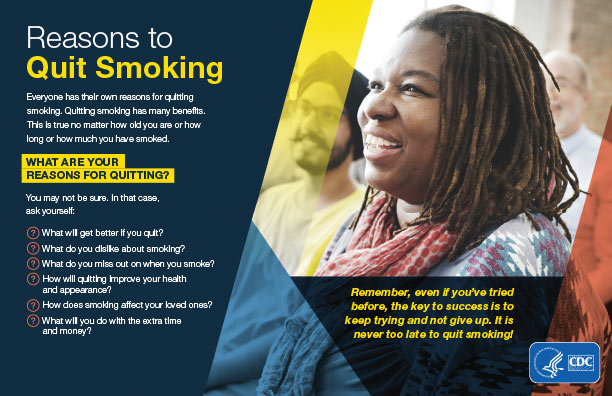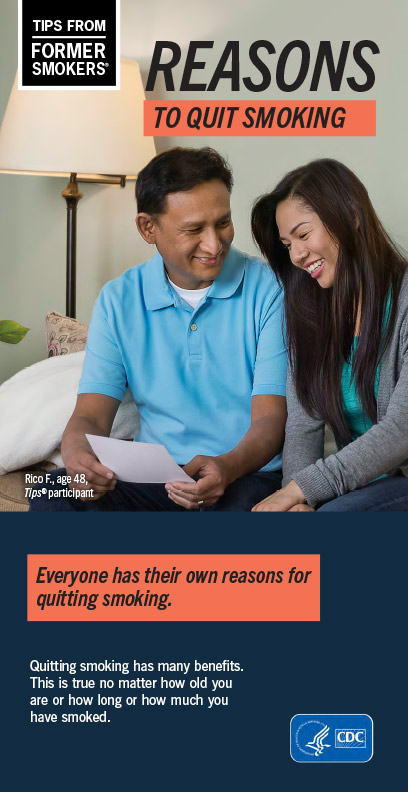Faith-Based Organizations
Spiritual leaders and places of worship can play an important role in fighting tobacco use, the number one cause of preventable death and disease in the United States. Below you’ll find simple steps and a list of resources than can help members of your community quit smoking for good.
Churches, synagogues, temples, monasteries, mosques, and other houses of worship are natural centers for spiritual, emotional, and physical wellness. As a faith leader, you can bring quit-smoking resources to those in need—and you can set an example on how to have a healthier lifestyle.

- Make your home, car, place of worship, and business/workplace smokefree and tobacco-free.
- Sponsor stop-smoking classes at your place of worship. Create and lead support groups.
- Educate community leaders about policies that make it easier for people who smoke to quit and harder for people to start smoking.
Use or share these resources with members of your place of worship:
- Campaign Resources. Access resources, including social media content, videos, print ads, buttons and badges and other content tailored for specific audiences.
- The Partnership Center for Faith and Opportunity Initiatives at the U.S. Department of Health and Human Services (HHS) – The Partnership Center helps build and support partnerships with faith-based and community organizations to better serve individuals, families, and communities in need.
- DHS Center for Faith-Based and Neighborhood Partnerships The U.S. Department of Homeland Security, Center for Faith-Based and Neighborhood Partnerships (DHS Center) fosters partnerships between government and faith-based organizations (FBOs) to increase the nation’s resilience by creating trust and developing relationships.
- Center at the Department of Housing and Urban Development (HUD) This Center serves as a resource center for secular and faith-based organizations that want to partner with HUD to address the housing and community development needs of neighborhoods.
Learn about frequently asked questions about the Tips campaign and how they can help you address tobacco use in the faith-based setting.
Why is CDC focusing on this faith-based initiative?
Faith-based organizations (FBOs) have long played an important role in addressing social challenges and protecting people at risk. People who are concerned about tobacco use may seek advice or assistance about quitting from their place of worship.
Cigarette smoking is the leading preventable cause of disease and death in the United States. The faith community can be a powerful force in reducing the toll smoking has taken on health.
As a faith leader, I have several competing social issues to present to my members. Why is reducing tobacco use important?
Cigarette smoking is still the leading preventable cause of death and disease in the United States. It is a risk factor for heart disease, stroke, diabetes, cancer, and other common chronic diseases. The good news is that the majority of people who smoke say they want to quit, and more than half try to quit each year. However, only 4% to 7% of smokers are successful in quitting each year. You can make a difference!
I don’t have a medical background. What can I do to help my members quit smoking?
Talking with your members about quitting smoking has never been easier. Find resources to support your work with members at CDC.gov/quit.


